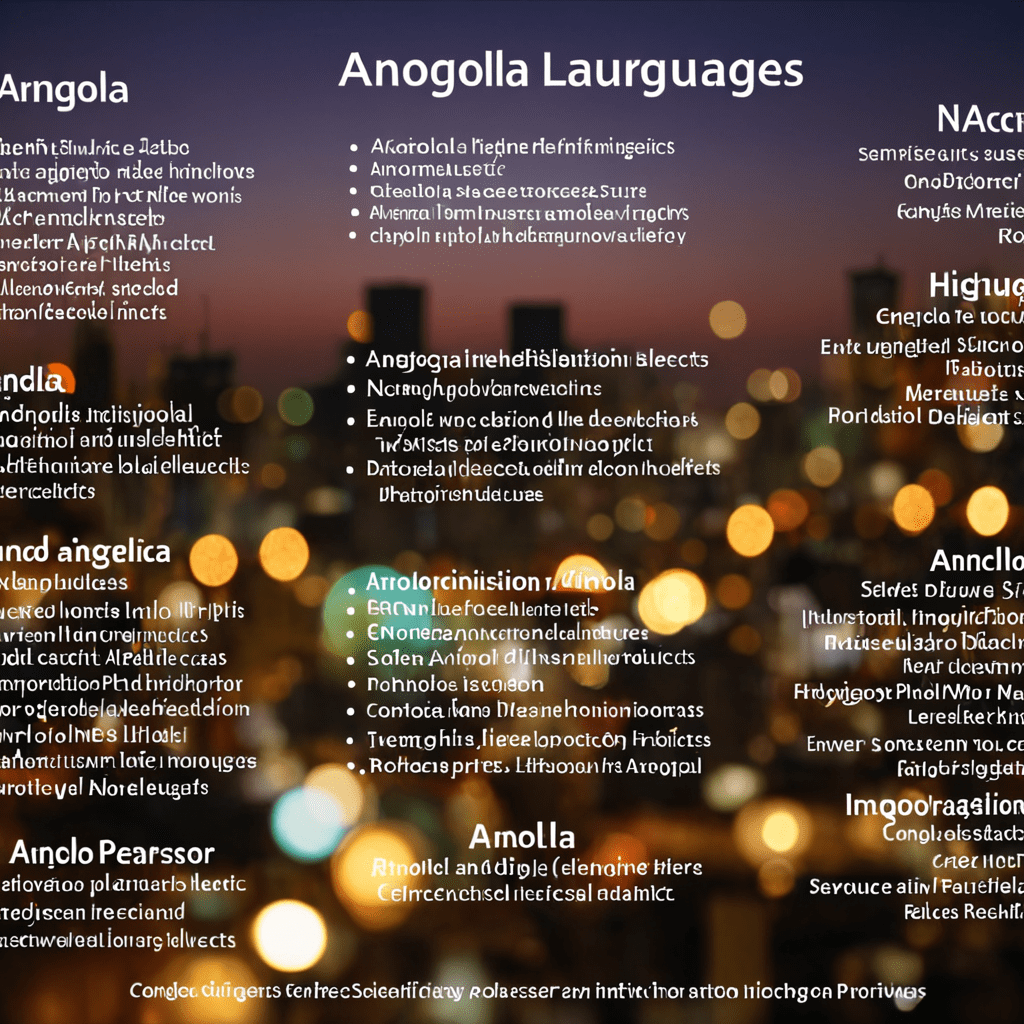
Exploring Angola’s Indigenous Languages and Dialects
Angola, a country rich in cultural diversity, is home to a fascinating array of indigenous languages and dialects. Let’s delve into the linguistic tapestry that makes Angola truly unique.
The Diversity of Languages
Angola boasts a remarkable linguistic landscape with over 40 distinct languages spoken throughout the country. These languages belong to various language families, showcasing the rich heritage and cultural heritage of Angola.
Umbundu: A Prominent Language
Umbundu is one of the most widely spoken Bantu languages in Angola, primarily used by the Ovimbundu people in the central and southern regions. It reflects a deep sense of identity and is an integral part of the cultural fabric of Angola.
Kimbundu: A Language of Unity
Kimbundu, spoken mainly in the Luanda and Malanje provinces, serves as a unifying language among different ethnic groups. It plays a vital role in communication and intercultural exchange in urban centers.
Kikongo: Rooted in Tradition
Kikongo, prevalent in northern Angola, holds a significant place in Angolan heritage. It is not only a means of communication but also a carrier of traditions, beliefs, and history passed down through generations.
The Challenge of Preservation
Despite the rich linguistic landscape, many indigenous languages in Angola are at risk of fading away due to urbanization, globalization, and the dominance of colonial languages. Efforts are being made to preserve and revitalize these languages for future generations.
Embracing Cultural Heritage
Embracing and promoting Angola’s indigenous languages and dialects is essential in preserving the country’s cultural heritage. By valuing linguistic diversity, Angola can ensure the continuity of its rich tapestry of traditions and identities.
Conclusion
Exploring Angola’s indigenous languages and dialects provides a glimpse into the country’s vibrant cultural mosaic. Each language tells a unique story, reflecting the rich history, traditions, and values of Angola’s diverse communities. Let us celebrate and preserve this linguistic heritage for generations to come.
FAQs about Angola’s Indigenous Languages and Dialects
What are the indigenous languages spoken in Angola?
In Angola, indigenous languages play a significant role. Some of the prominent ones include Umbundu, Kimbundu, Kikongo, Chokwe, and Nganguela.
How many indigenous languages are spoken in Angola?
There are over 40 indigenous languages spoken in Angola. These languages reflect the diverse cultural heritage of the country.
Are there any endangered indigenous languages in Angola?
Yes, some indigenous languages in Angola are considered endangered due to factors like urbanization and the dominance of Portuguese. Efforts are being made to preserve and promote these languages.
What dialects are spoken within these indigenous languages?
Within the indigenous languages of Angola, various dialects exist. For example, Kimbundu has dialects such as Luanda and Nsoso, adding richness and diversity to the linguistic landscape.
How is the preservation of Angola’s indigenous languages being promoted?
Organizations and initiatives in Angola are working towards preserving indigenous languages through educational programs, cultural events, and documentation efforts. This aims to safeguard these languages for future generations.
Why is it essential to preserve Angola’s indigenous languages?
Preserving Angola’s indigenous languages is vital for maintaining cultural identity, fostering community cohesion, and honoring


